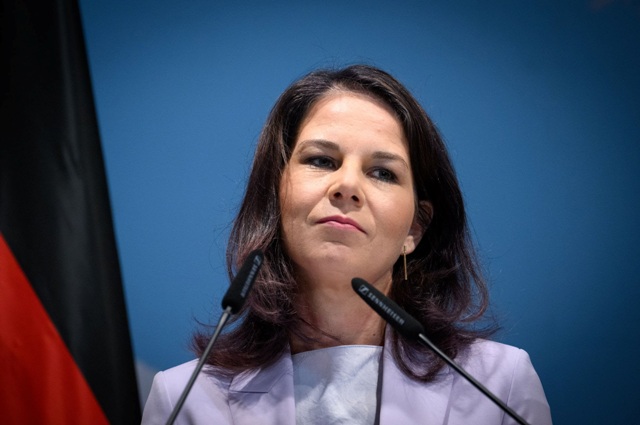Russian ambassador summoned over expulsion of German journalists

By Michael Fischer, Leonard Fischer and André Ballin, dpa
BERLIN – The German Foreign Office summoned the Russian ambassador in Berlin on Thursday, after the Russian authorities announced the expulsion of two employees, journalists working with the German public broadcasting station, ARD.
“The expulsion of ARD employees by Russia is unacceptable, and the justification is simply false and dishonest. We condemn this in the strongest terms,” Foreign Minister Annalena Baerbock said of the summoning.
On Wednesday the regional broadcaster WDR, which is responsible for covering Russia for the ARD network, confirmed that two ARD employees – a correspondent and a technician – must return their accreditation and leave Russia by December 16.
Russian Foreign Ministry spokeswoman Maria Zakharova said the move was in response to the expulsion of correspondents from Russian state television by German authorities – a claim that Berlin denies.
Baerbock accused Moscow of a “propaganda battle with false claims.”
“It is simply not true that we have any restrictions on press freedom in Germany or Europe,” she said. The Russian state TV station 1. Kanal had previously said it had been ordered to close its office in Berlin – a claim that the German authorities have denied.
Denied residency permits
The immigration office for the state of Berlin told dpa on request that the agency had refused to issue residence permits to five people from several Russian media outlets, including four journalists and one spouse. In some cases, the legal proceedings are still pending.
A reason given in one case was that the Russian media outlet was spreading misinformation and propaganda to discredit the West and the European Union. The immigration office also referred to the EU and a sanctions package that affects Russian media outlets.
Baerbock noted that Germany was governed by the rule of law, meaning the decision could be appealed.
In Moscow, Zakharova said the journalists for the Russian channel had been harassed in Germany for over a year, noting that Moscow had warned the German Foreign Ministry six months ago that there would be consequences.
The Russian ambassador to Germany, Sergey Nechayev, would now remind Baerbock’s office of this, Zakharova added.
Tougher conditions in Moscow
Russia has made the work of foreign journalists much more difficult since the start of Russia’s full-scale invasion of Ukraine in February 2022.
Foreign correspondents from countries designated by Russia as “unfriendly” are now only issued the required press accreditations for three months, instead of one year.
The dangers of reporting have also increased. A correspondent for the Wall Street Journal newspaper, Evan Gershkovich, was arrested by the FSB during a reporting trip in March 2023 on allegations of espionage.
He was held in jail for more than a year, convicted and sentenced to 16 years in prison before being freed in a major prison exchange deal on August 1.
Shortly before the war, the Russian authorities had closed German state broadcaster Deutsche Welle’s bureau in Moscow. The Russian government justified the closure as a response to an earlier decision by German authorities to deny a broadcasting licence to Russian state broadcaster RT’s German-language channel.

